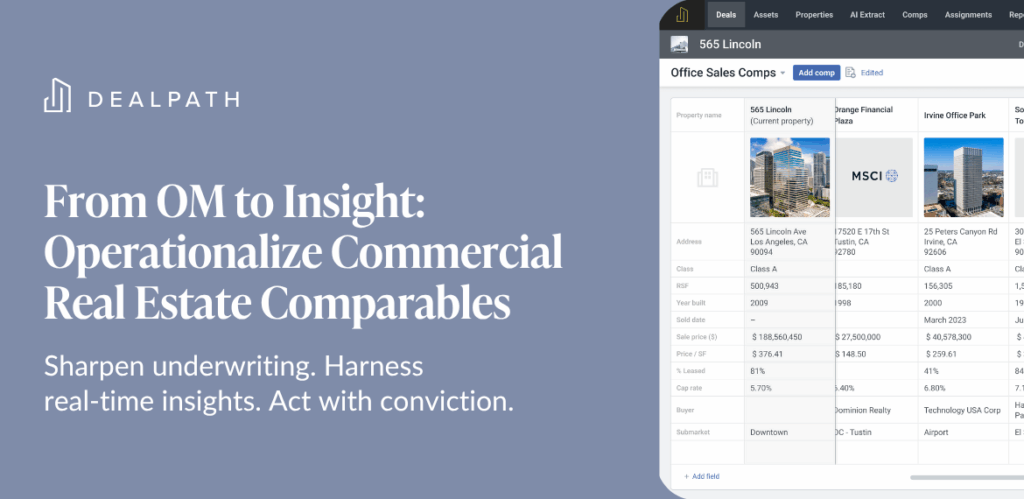COVID-related paradigm shifts like the work-from-home transition and the eCommerce boom have disrupted long-standing asset classes like office and retail, but for one rising property type, they’ve actually created more opportunities: life sciences. The life sciences real estate market is burgeoning, particularly as people continue to put a greater focus on their health, creating the need for research and development. For investors, the life sciences market offers a lucrative vehicle to capitalize on this trend and indulge tax incentives.
As of May 2024, the rise in quarterly demand in Boston, the Bay Area and San Diego has averaged 17%. Read on to learn more about the real estate life sciences market, including recent trends, the hottest markets and more.
What Is Life Sciences: Understanding One of Real Estate’s Fast-Growing Markets
Life sciences is the umbrella term for real estate designed and built to facilitate the advancement of medicine and healthcare. This market spans industries like biotechnology, pharmaceuticals, medical device companies, genomics and many more.
While most life sciences clients are engaged in medical research and development, individual needs, equipment and regulations vary significantly. For this reason, lease arrangements are rarely straightforward or interchangeable– a space built to suit one tenant might need to undergo months of modifications to suit another. Owners must also consider lab utilities, hazardous waste disposal, floor strength, landings, ceiling height, HVAC requirements, and mechanical systems, all critical considerations for tenants. Consequently, suitable space can be difficult to come by, and generally requires relatively high rents. The growth or funding stage of a company can also create barriers when it comes to space.
As the general population continues to age, and concerns around health rise, the need for research–and the corresponding demand for life sciences space–will only continue to rise.
2021: A Record Year for Life Sciences Real Estate
Quickly rising on the radar of many opportunistic investors, 2021 marked a landmark year for the life sciences sector. In New York, leasing for life sciences properties climbed to a record high of 443k square feet, surpassing the previous 7 years combined.
Before the first half of 2021 was over, life sciences real estate investment reached $17 billion, signaling that investors also have their eyes on growth. This growth didn’t erupt out of nowhere, though. According to a JLL report, life science real estate markets have grown by 63% over the past five years–meaning that the pandemic catalyzed existing growth, rather than a sudden spurt.
Growth on the Horizon
Following peak activity in 2021 and a cooldown over subsequent years, the life sciences market is already signaling a resurgence in activity, according to a CBRE report. This is driven in large part by a rise in research and development spending.
The number of drugs on trial in Phase 1 or 2 stages is 71.4%, the highest since 1998. The FDA has also made a significant number of novel drug approvals. Additionally, by the end of 2023, experts anticipate the number of novel drug approvals to rank in the top three years. A 7.2% increase in the request for funding from the national Institutes of Health would be the second largest ever, behind the increase in 2003.
For investors, momentum across the broader industry validates the growing demand for real estate to support these advancements.
The Real Estate Markets Where Life Sciences Is Booming
While life sciences has spiked in demand among tenants and popularity among investors, not all markets pose the same opportunity. In fact, according to the JLL report, much of this opportunity is concentrated across top markets, such as:
- Boston
- San Francisco
- San Diego
- Raleigh-Durham
- New York/New Jersey
This concentration has resulted from a few shared characteristics, which typically lead to a strong life sciences market, like:
- Academic institutions with strong research departments
- Proximity to capital sources like banks, VCs and others that contribute research funding
- A life sciences talent market
As this segment of the market matures, investors can expect to see competition accelerate, and other metros climbing this ladder.
Unpacking The Opportunity for Investors
There are a few reasons that investors might choose to venture into the relatively fresh life sciences real estate market. Despite high barriers to entry, macroeconomic trends indicate a high potential for profitability.
First, in a market where new trends have challenged the status quo of time-tested asset classes like office and retail, some investors might find an unknown–and yet thriving–sector promising. Like qualified multifamily opportunity zones, life sciences investments might also offer tax credits.
Because tenants typically require tailored facilities to accommodate highly unique needs, there is also strong competition for development sites, particularly in Boston, the heart of the life sciences real estate market. Life sciences real estate developers can capitalize on build-to-suit opportunities.
In avoiding the many pitfalls of new development, such as permitting and construction processes, some investors have instead focused their efforts on converting other asset classes. With extensive and albeit costly modifications, existing office spaces can meet life science tenants’ needs.
Relying on a deal management platform to source, screen and manage new opportunities is the best way to ensure that new deals pencil out based on historical data.
17 CRE Investment Questions Your Data Can (Finally) Answer Expedite and Add Visibility to Your Industrial Real Estate Investing Process
To outperform the competition and move at digital speed, real estate investment managers must make decisions that are grounded in–not simply supported by–data. Download this guide to learn just a few examples of how CRE investment managers can turn data into answers with unprecedented speed, precision and scale with deal management software.
DOWNLOAD NOW



